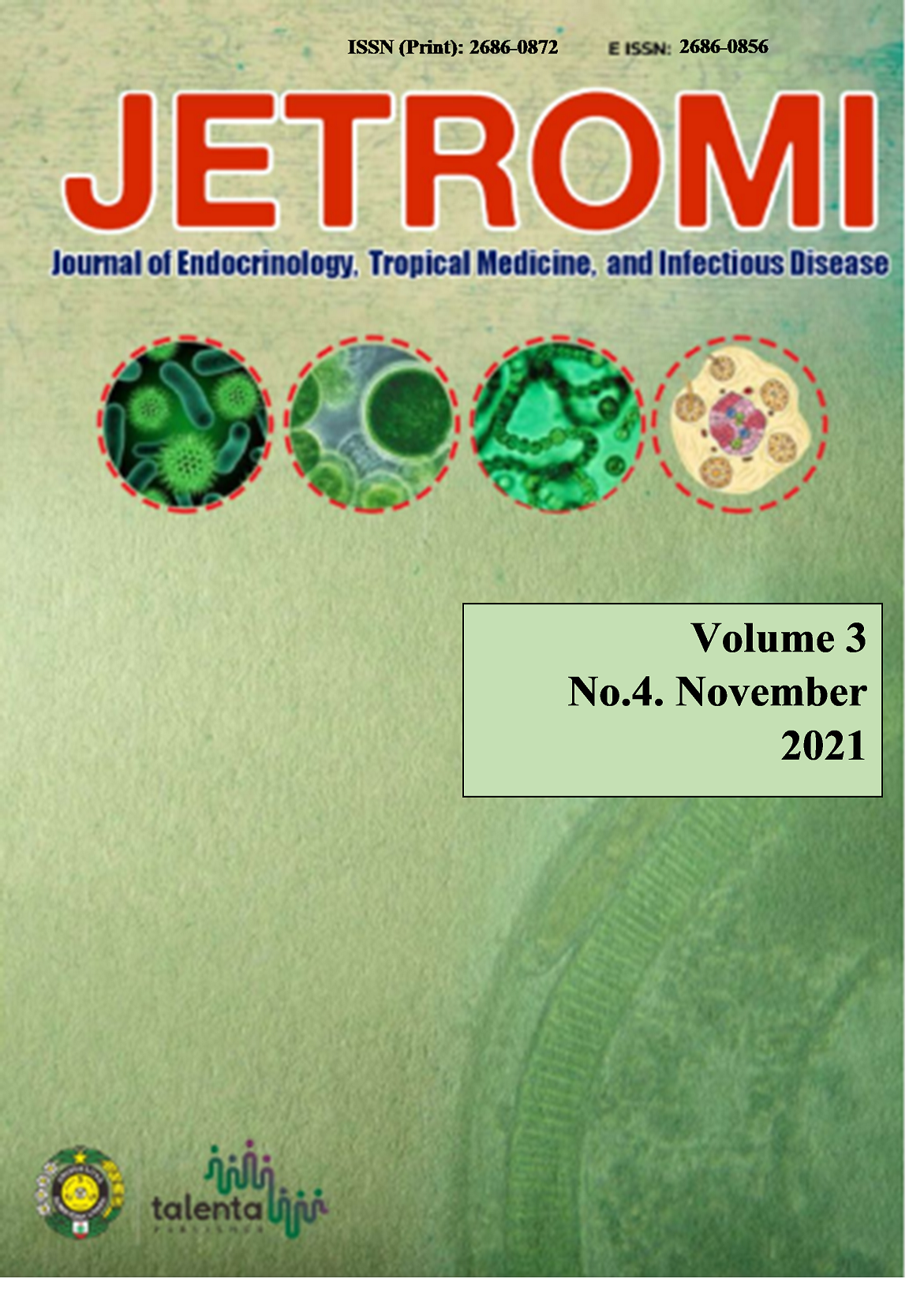Correlation between HbA1C and D-dimer in Type 2 Diabetic with COVID-19 Patients
DOI:
https://doi.org/10.32734/jetromi.v3i4.7529Keywords:
D-dimer, T2DM, COVID-19Abstract
Background: Coronavirus disease-19 (COVID-19) is the disease caused by 2019-nCoV/SARS-CoV-2, a novel β corona- virus of group 2B . COVID-19 has been reported to be associated with severe condition with type 2 diabetes mellitus (T2DM). D-dimer is a by product of fibrin degradation. It is widely recognized as a biomarker for thromboembolism and as a prognostic marker for critical patients.
Methods: This study uses secondary data, which is obtained by looking at the contents of patient medical records at H. Adam Malik Medan Hospital between 2020-2021. The population of this study was all inpatients confirmed COVID-19 through an RT-PCR SARS-CoV-2 swab examination. The study sample was obtained by the total sampling method, where all populations that meet the criteria of inclusion and exclusion are used as research samples. Patients were triaged as per severity on basis of national guidelines: asymptomatic, Mild (respiratory rate < 24/min, SpO2 >94% at room air), moderate (respiratory rate: 24-30/min, SpO2 90-94% at room air) and severe (respiratory rate >30/min SpO2 < 90%), ARDS and septic shock [6]. HbA1c implementation using HPLC methods and D-dimer is measured by ELISA method.
Result: There were 163 patients consisting of 92 men and 71 women, the average age was 56.9±10.3 years, and HbA1c, FPG and PPG remained uncontrolled. There were no differences in age parameters of blood sugar profiles and D-dimers between men and women. D-dimers are significantly negatively correlated with PPG.
Conclusion: Age, blood sugar profile and D-dimer did not differ significantly between men and women, and D-dimer had a correlation significantly with PPG on T2DM with COVID-19 patients.
Keywords : D-dimer, T2DM, COVID-19
Downloads
Downloads
Published
Issue
Section
License
Copyright (c) 2021 Journal of Endocrinology, Tropical Medicine, and Infectious Disease (JETROMI)

This work is licensed under a Creative Commons Attribution-NonCommercial-ShareAlike 4.0 International License.
The Authors submitting a manuscript do so on the understanding that if accepted for publication, copyright of the article shall be assigned to Journal of Endocrinology, Tropical Medicine and Infectious Diseases (JETROMI).
Copyright encompasses exclusive rights to reproduce and deliver the article in all form and media. The reproduction of any part of this journal, its storage in databases and its transmission by any form or media, will be allowed only with a written permission from Journal of Endocrinology, Tropical Medicine and Infectious Diseases (JETROMI).








